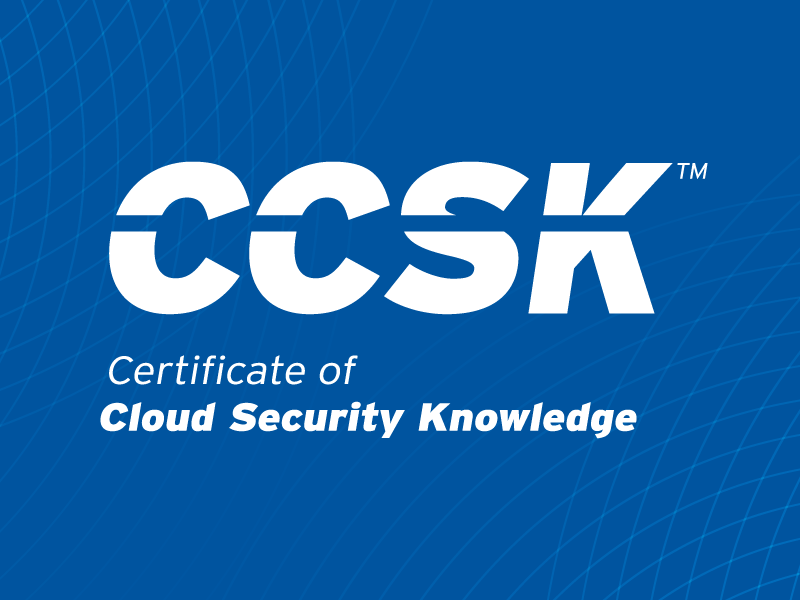Cyber Essentials Certification Cost and Related Expenses: A Detailed Breakdown
Published 12/05/2024
Originally published by Vanta.
The Cyber Essentials assurance scheme is one of the best accreditations you can obtain for improving your organization's cybersecurity posture and reducing the risk of cyberattacks. It offers a robust set of controls you can implement to fortify the security of your data, systems, and other IT assets and build greater trust with your stakeholders.
The cost of a Cyber Essentials certification starts at £300, but it can easily go up depending on the size of your enterprise and the level of assurance you wish to demonstrate.
This guide breaks down the various price points for securing a Cyber Essentials certification to help you understand if getting certified is worth the investment. We’ll also highlight the commonly overlooked additional expenses that you should keep in mind.
Cyber Essentials: A quick overview
Cyber Essentials is a U.K. government-backed assurance scheme helping organizations of all sizes improve their cybersecurity measures and enable better protection from various cyber threats. While the framework was launched by the U.K.’s National Cyber Security Centre, organizations from other countries can also follow the prescribed requirements and get certified.
If you decide to pursue this assurance scheme, you can choose between two certification levels:
Cyber Essentials certification
The base Cyber Essentials certification works as a self-assessment practice where you need to verify if you meet the required cybersecurity controls. After that, you’ll have to complete a questionnaire that a senior executive must sign to verify the accuracy of the answers.
The questionnaire is then assessed by IASME, the designated body that issues the certificate after you meet the necessary security conditions.
Cyber Essentials Plus certification
Cyber Essentials Plus works similarly to the base certification, with the addition of a third-party audit. An independent auditor is required to perform a technical assessment of your systems to give you additional assurance that they’re secure enough to withstand more complex attack attempts.
The cost of the Cyber Essentials Plus certification is higher compared to the basic version because of the introduction of multilevel checks, as well as the involvement of external assessors/audit bodies. There are some other cost factors to consider that we’ll discuss in the following sections.
How much does Cyber Essentials cost?
The cost of Cyber Essentials ranges between £320 and £600 (+ VAT). The exact price primarily depends on the size of your organization—the following table outlines the pricing structure:
| Organization size | Cyber Essentials cost |
|---|---|
| Micro organizations (0–9 employees) | £320 + VAT |
| Small organizations (10–49 employees) | £440 + VAT |
| Medium organizations (50–249 employees) | £500 + VAT |
| Large organizations (250+ employees) | £600 + VAT |
Regardless of your organization’s size and corresponding costs, Cyber Essentials can be a reasonable, ROI-boosting investment, considering how it can improve your security posture. If you want to further upgrade and validate your system through Cyber Essential Plus it will be more expensive.
How much does Cyber Essentials Plus cost?
Unlike the base-level Cyber Essentials certification, Cyber Essential Plus has no fixed pricing structure. Instead, you need to contact IASME for a quote.
Still, based on insights shared by third-party certification services, you can get a general idea of the costs. The following table presents the various numbers available (to be considered as a reference point only):
| Organization size | Cyber Essentials Plus cost |
|---|---|
| Micro organizations (0–9 employees) | £1,499 + VAT |
| Small organizations (10–49 employees) | £1,999 + VAT |
| Medium organizations (50–249 employees) | £2,499 + VAT |
| Large organizations (250+ employees) | £2,999 + VAT |
As mentioned earlier, Cyber Essentials Plus costs more because of the independent technical audit aspect, which is either performed on-site or remotely. There are also additional benefits that can't be quantified immediately, such as:
- Demonstrating better cybersecurity posture to potential clients and securing bigger deals.
- Enjoying a greater reputational standing than a Cyber Essentials-certified company.
- Having a more resilient cybersecurity posture.
Additional costs of getting a Cyber Essentials certificate
The total cost of obtaining a Cyber Essentials certificate can (and often does) exceed the cost of the certification process alone. You should especially factor in the following potential expenses:
- Security requirements: You’ll need to implement internal security measures to pass the Cyber Essentials questionnaire (firewalls, malware protection, etc.). Unless you already meet all the necessary conditions, you may have to invest toward improving security infrastructure.
- Employee training: You’ll likely have to train employees on relevant cybersecurity practices, like access controls, which can incur extra costs.
- Consultancy expenses: Some organizations don’t want to pursue Cyber Essentials certification without additional help from consultants that help them ensure compliance. These consultants charge anywhere between $150 and $300 per hour. IASME also offers consultant access under their Cyber Advisor program—the fee charged by these professionals depends on the security posture, size, and complexity of your IT estate.
- Renewal: A Cyber Essentials certificate is valid for 12 months, so you’ll need to renew it annually to maintain your security posture.
Is a Cyber Essentials certificate worth it?
The Cyber Essential certification is worth the investment because it fortifies your organization’s cybersecurity level. It also protects your entity from expensive and potentially revenue-blocking scenarios, such as:
- Data breaches: A data breach not only disrupts your operations but also exposes you to significant remediation costs. You might even run into legal issues in severe cases.
- Reputation damage: Reputation loss due to exploited cybersecurity vulnerabilities can impact your organization’s revenue streams.
- Missed business opportunities: Some government projects require organizations to have a Cyber Essentials certificate, so you may not be able to participate in tenders without one.
- Operational disruptions: Unaddressed cybersecurity risks can trigger events, such as a phishing attack, that disrupt your daily operations and cause your organization to lose resources during remediation.
On the plus side, a Cyber Essentials certificate brings various benefits, including:
- Increased customer trust: A Cyber Essentials certificate shows that you care about protecting customer data, which can go a long way toward helping you build a solid customer base.
- Higher stakeholder confidence: Various stakeholders (i.e., investors and partners) will appreciate a demonstrated cybersecurity strategy so you can unlock new growth and funding opportunities.
- Secure, up-to-date tech stack: A Cyber Essentials certification and subsequent renewals ensure you have the latest controls in place to protect your network and tech stack against newer threats.
Unlock Cloud Security Insights
Subscribe to our newsletter for the latest expert trends and updates
Related Articles:
The CSA Triangle Chapter’s Year of Momentum: 2025 Highlights
Published: 12/11/2025
Introducing TAISE: The Trusted AI Safety Expert Certificate
Published: 10/22/2025
From Compliance to Culture: What CISOs Need to Know About Evolving SAT
Published: 10/02/2025






.jpeg)
.jpeg)
.png)
.jpeg)